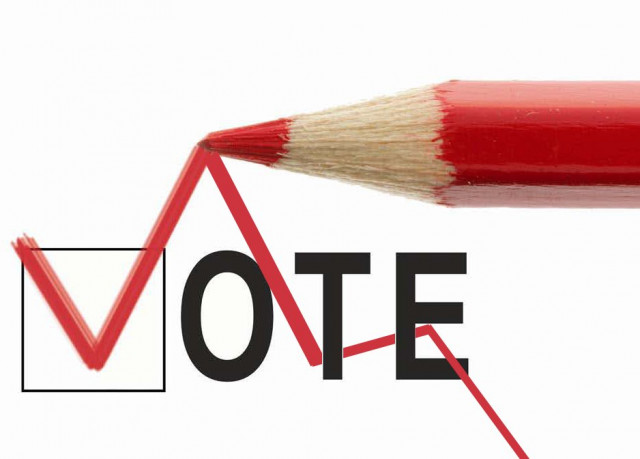Electoral loophole?: Minorities demand right to elect representatives
Say parties choose candidates who only serve their own interests.

“The present so-called non-Muslim representatives are just puppets who work for the personal interests of their parties," says Dr Hamdard. PHOTO: EXPRESS/FILE
Minorities in Khyber-Pakhtunkhwa (K-P) on Monday demanded they should be given the right to choose their own representatives in the federal and provincial government.
A focus group on Electoral Process and Minority Rights was organised by the Peace Education and Development Foundation (PEAD) in collaboration with Global Human Rights Defence (GHRD).
Representatives from various faiths practiced in K-P participated in the discussion. They expressed displeasure over the current process whereby political parties select their respective candidates for seats reserved for minorities.
Participants said although the Constitution provides them equal rights, they found the implementation purely cosmetic, resulting in token representation of minorities in the national and provincial assemblies.
Representatives present at the convention demanded a separate electoral process in the upcoming elections whereby minorities can choose their own candidates through ballot.

National Peace Committee for Interfaith Harmony Chief Advisor Dr Stephen Salim Hamdard maintained there is no proper representation of non-Muslims in the assemblies. “Non-Muslim candidates are just representatives of their parties; they are not there to address the issues and problems of minorities in their constituencies,” he claimed
“The present so-called non-Muslim representatives are just puppets who work for the personal interests of their parties – that’s why our condition in Pakistan is deteriorating on a daily basis.”
All Pakistan Hindu Rights Movement Chairman Haroon Sarabdiayal termed the present electoral system “poisonous for the poor non-Muslims.” He endorsed the demand of non-Muslims being given the choice to choose their own representatives, rather than political parties fielding their own candidates.
According to human rights activist Augustan Jacob, minorities cannot achieve targets without collectively thinking about their coming generations. He cited non-representation in assemblies as the reason behind misuse of funds and deprivation of basic rights.
He said Hindus constituted 20% of the total population of Pakistan at the time of its inception, adding that their population has now shrunk to around 4.2 million or 1.7% of the total population.
“Since we cannot vote for our representatives, nobody is accountable to us, nobody cares about the betterment of minorities,” said Sikh Committee of Pakistan Chairman Radesh Singh. “A majority of our people are economically and educationally very poor. There is lack of awareness among them.”
Singh demanded special and educational opportunities be provided to people belonging to faiths other than Islam.
Another human rights activist, Sham Naveed maintained political parties never seek the consent of non-Muslims while selecting their representatives. According to Naveed, Pakistan Tehreek-e-Insaf (PTI) initially offered hope for change, but it too disappointed non-Muslims when minorities were deprived of their right to elect desired candidates in its intra-party elections on union council, district and provincial levels.
“So as per our political culture, they will also select a new and unfamiliar non-Muslim as the so-called representative of the minority communities.”
Asraf Masih, a senior Christian representative, said Article 25 of the Constitution clearly states all citizens of Pakistan are equal and there will be no discrimination on the basis of gender, religion, faith and ethnicity. “But we see a clear violation of the said article as we have no right to vote for our own representative.”
Political parties submit a list of candidates to the Election Commission of Pakistan. The commission then allocates minority seats to a party based on the number of general seats it secures in the elections.
Published in The Express Tribune, March 5th, 2013.












COMMENTS
Comments are moderated and generally will be posted if they are on-topic and not abusive.
For more information, please see our Comments FAQ